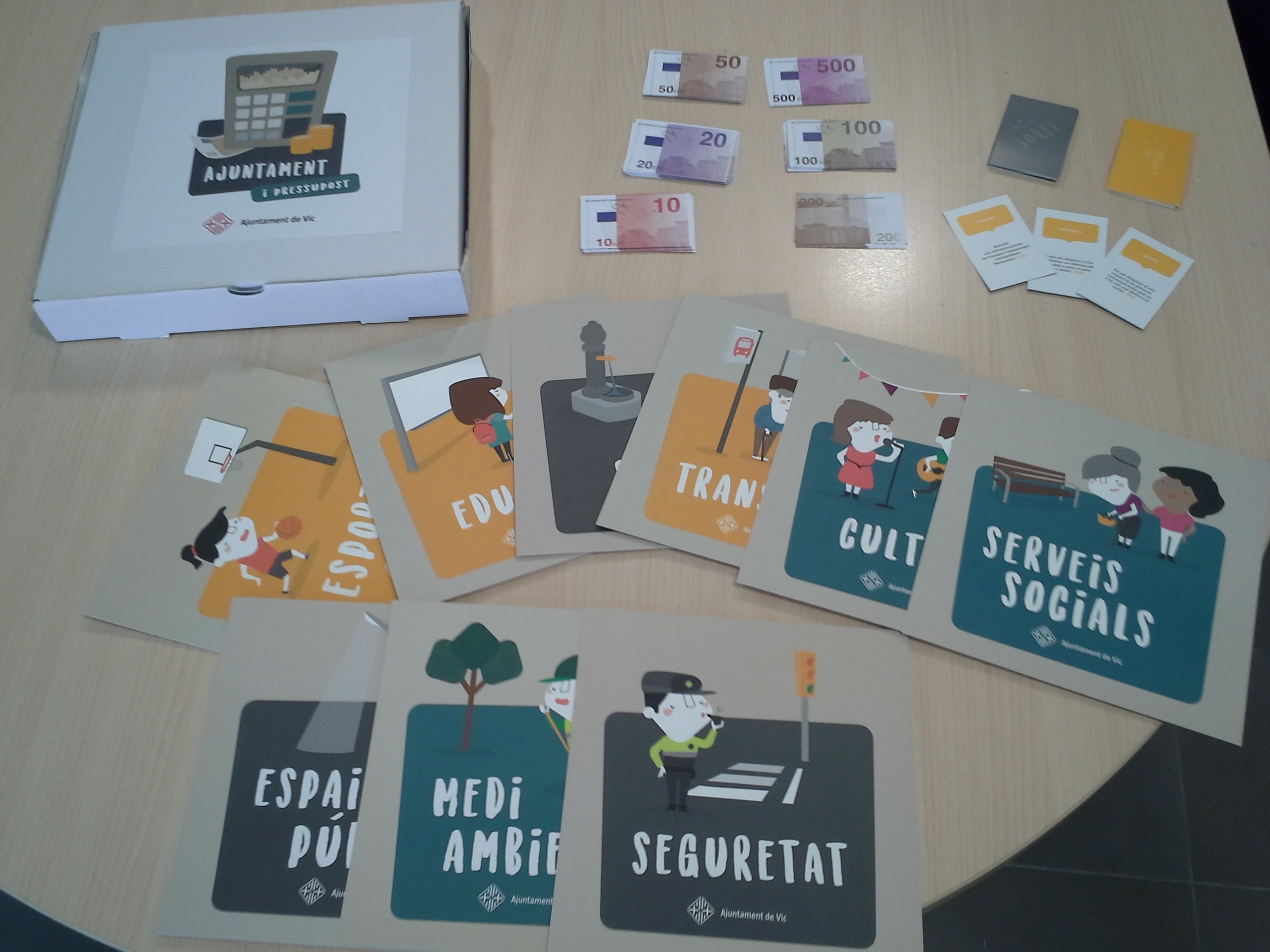Description
The City of Vic is the demographic, administrative and services centre of the region of Osona. It has an area of 32km2 and a population of 43.827 inhabitants. In the last 20 years people from another countries has arrived to city attracted by the industry. Nowadays, in Vic more than 25% of people have born in 94 different countries, mainly from Morocco, Ghana and India.
In the last 15 years, stable structures of citizen participation have been created in the shape of forums and councils. There have been some successful participative processes mostly linked to urbanism, and 3 years ago participative budget was started.
In the beginning of the current legislature (2015-2019) the municipal government, together with citizen participation team, created some strategic lines which collect the objectives in matter of citizen participation for these four years. One of these lines is about promote the education in citizen participation, taking participation as a process of constant learning generated in a group and which it is important to stimulate, encourage and learn. In the framework of this strategy is where we define this experience as a good practice; to create educational material as a resource to promote citizen participation.
The format of educational resource is the key. We start out with the idea that people learn when day have fun, so the game becomes a tool to the learning, so much for children, youth and adults.
The material consists of guides targeted for teachers, monitors or educators where you can find information about different aspects related with democracy, the City Council, budgets and citizen participation. Pedagogic material is added to these guides to work with children, youth and adults.
Specifically, educational resource starts with the stimulation of an elections where children develop a candidacy, make an election campaign, vote, make a vote count and a final act. This first stage is very helpful to choose a delegate or representative or to simulate an election and learn more about how democracy works.
Another part of the material is a role game called the City Council and the budget. This material was used in different classrooms of 6th grade in schools of Vic (12 years old) in the first edition of participative budgets in 2014. With this game, participants experience the role of politicians and have to take decisions about problems and situations that come up all over the game and that are related with the municipal budget. This material is accompanied with a guide with content to better understand municipal finances (incomes and expenses).
Eventually, there is a resource created as a television debate where, previously and in groups, the needs and problems are detected, prioritized and argued, then different positioning are made and finally are debated to reach an agreement. During the development of this activity, all participants play an active role: they decide who will be the representative, the film maker, the moderator, the attendant of atrezzo and costume…
All this material is beginning to be used in the sessions of Child City Council of 2016 and has been handed to the 6th grade students of all schools in the city. Nevertheless, the material can be adapted and it's expected to be used also in secondary centres open centres, reception programmes, linguistic normalization and other programmes carrying out in Vic. Flexibility and adaptability is a basic characteristic of the material. In the same way, participation team can adapt the material depending on the group is focused on.
The sessions with child counsellors are planned as spaces of information, debate, experimentation and return. In each session we work with one of these resources, explaining briefly the basic contents. Then, in small groups we experiment with the resource and finally we make an assessment to clarify the difficulties. Before ending each session, child counsellors have to explain to the other mates the experience.
This first pilot test proves that through this educational material, children between 11 and 12 years can learn and understand easily what democracy is, how an elections are made, what does the City Council do, how can citizenship participate. They also learn that it is important to listen, argue, express an opinion, debate and reach agreements. Children themselves understand that in a debate you can't always win, but it is important to take in account different points of view and work together with new ideas.
Educational material of citizen participation, all over 2017, will continue be used in a coordinated way with other programmes, projects and municipal departments. Specifically, with programs of civility, reception office, cooperation, education or citizenship…Furthermore, it is also provided that these educational resources are handed or promoted in the Linguistic Normalization Centre (where adults learn Catalan), adult's school, secondary centres and in other spaces of participation.
The experience is very innovative as it starts up of a widespread concern about democratic governments due to the low participation and the quality of this participation. It is also a flexible material that can be adapted to different contexts and educational level and it is easy to check its performance in a short term.
It is a practical and useful material that combines practical information and basic and real contents, and it can be experimented in a playful way.
The guides and material are available to everyone in the City Council webpage and both games are available to those who apply for.
